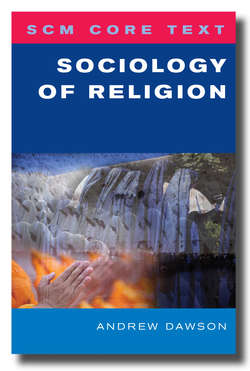Читать книгу SCM Core Text Sociology of Religion - Andrew Dawson - Страница 51
На сайте Литреса книга снята с продажи.
Religious mystification and ideological sanction
ОглавлениеMarx’s critique of religion can be said to be twofold. On the one hand, religion contributes to humankind’s inability to perceive itself as an active agent of historical change. By virtue of its mystifying and alienating origins, religion instead identifies humanity as the passive object of supernaturally determined social structures and processes. By no means the only ideological culprit, as a form of ideology par excellence, religion is nevertheless a key part of the problem. On the other hand, religious institutions are integral to upholding prevailing systems of inequality. By virtue of its alliance with and dependence upon the status quo, established religion works hand-in-glove with the ruling elite. While not the only source of ‘moral sanction’ and ‘justification’ of dominant modes of societal reproduction, established religion nevertheless provides an important roadblock to social transformation. In combination, the inherent nature of religiosity and the concrete practices of religious institutions make religion both unable and unwilling to contribute to radical social transformation. Furthermore, its alienating character and privileged institutional status leads religion – both unwittingly and intentionally – to agitate against such change ever taking place. On both counts, then, religion is an enemy of those in need of change.
Although engaged by both Durkheim and Weber, Marx’s work became something of a niche interest until its later translation and subsequent mainstreaming at the hands of left-leaning academics and successive emancipatory movements which emerged in Europe and the USA in the 1960s. On the one hand, the unsystematic character of Marx’s work and its overly deterministic readings of historical development and economic causality have limited its appeal to social theorists. On the other, Marx’s egalitarian concerns, reflections upon the unequal nature of society and the relationship between knowledge and social location have proved inspirational to those theoretically and practically committed to understanding and/or engendering social transformation.
